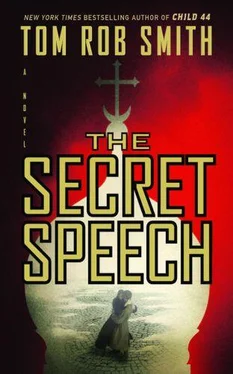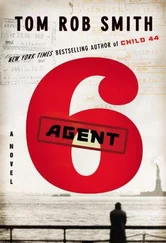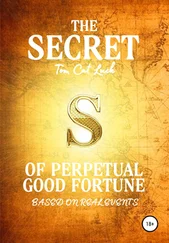Tom Smith - The Secret Speech
Здесь есть возможность читать онлайн «Tom Smith - The Secret Speech» весь текст электронной книги совершенно бесплатно (целиком полную версию без сокращений). В некоторых случаях можно слушать аудио, скачать через торрент в формате fb2 и присутствует краткое содержание. Жанр: Триллер, на английском языке. Описание произведения, (предисловие) а так же отзывы посетителей доступны на портале библиотеки ЛибКат.
- Название:The Secret Speech
- Автор:
- Жанр:
- Год:неизвестен
- ISBN:нет данных
- Рейтинг книги:5 / 5. Голосов: 1
-
Избранное:Добавить в избранное
- Отзывы:
-
Ваша оценка:
- 100
- 1
- 2
- 3
- 4
- 5
The Secret Speech: краткое содержание, описание и аннотация
Предлагаем к чтению аннотацию, описание, краткое содержание или предисловие (зависит от того, что написал сам автор книги «The Secret Speech»). Если вы не нашли необходимую информацию о книге — напишите в комментариях, мы постараемся отыскать её.
The Secret Speech — читать онлайн бесплатно полную книгу (весь текст) целиком
Ниже представлен текст книги, разбитый по страницам. Система сохранения места последней прочитанной страницы, позволяет с удобством читать онлайн бесплатно книгу «The Secret Speech», без необходимости каждый раз заново искать на чём Вы остановились. Поставьте закладку, и сможете в любой момент перейти на страницу, на которой закончили чтение.
Интервал:
Закладка:
Individual space molds were added to the incomplete line until the assembly grid was full. A plunger depressed molten lead into the mold and a narrow rectangular slug dropped out — the last words Suren Moskvin set before taking his own life.
The single slug lay on its side, its letters tilted away from view. Leo asked:
— Is it hot?
— No .
Leo picked up the slug line, placed it on the tray. He covered the surface with ink and placed a single sheet of white paper over the top, pressing down.
SAME DAY
SEATED AT HIS KITCHEN TABLE, Leo stared at the sheet of paper. Three words were all that remained of the document that had resulted in Suren Moskvin taking his own life:
Under torture, Eikhe
Leo had read the words over and over again, unable to take his eyes off them. Out of context, their effect was nonetheless hypnotic. Breaking their spell, he pushed the sheet of paper aside and picked up his case, laying it flat on the table. Inside were two classified files. In order to obtain access to them he’d needed clearance. There’d been no difficulty regarding the first file, on Suren Moskvin. However, the second had prompted questions. The second file he’d requested was on Robert Eikhe.
Opening the first set of documents, he felt the weight of this man’s past, the number of pages accumulated on him. Moskvin had been a State Security officer — just like Leo — a Chekist, for far longer than Leo had ever served, keeping his job while thousands of officers were shot. Included in the file was a list: the denouncements Moskvin had made throughout his career:
Nestor Iurovsky. Neighbor. Executed
Rozalia Reisner. Friend. 10 years
Iakov Blok. Shopkeeper. 5 years
Karl Uritsky. Colleague. Guard. 10 years
Nineteen years of service, two pages of denouncements, and nearly one hundred names — yet he’d only ever given up one family member.
Iona Radek. Cousin. Executed
Leo recognized a technique. The dates of the denunciations were haphazard, many falling in one month and then nothing for several months. The chaotic spacing was deliberate, hiding careful calculation. Denouncing his cousin had almost certainly been strategic. Moskvin needed to make sure it didn’t look as if his loyalty to the State stopped at his family. To suffuse his list with credibility the cousin had been sacrificed: protection from the allegation that he only named people who didn’t matter to him personally. A consummate survivor, this man was an improbable suicide.
Checking the dates and locations of where Moskvin had worked, Leo sat back in surprise. They’d been colleagues: both of them employed at the Lubyanka seven years ago. Their paths had never crossed, at least not that he could remember. Leo had been an investigator, making arrests, following suspects. Moskvin had been a guard, transporting prisoners, supervising their detention. Leo had done his utmost to avoid the basement interrogation cells, as if believing the floorboards shielded him from the activities that went on below, day after day. If Moskvin’s suicide was an expression of guilt, what had triggered such extreme feelings after all this time? Leo shut the folder, turning his attention to the second file.
Robert Eikhe’s file was thicker, heavier, the front cover stamped CLASSIFIED , the pages bound shut as if to keep something noxious trapped inside. Leo unwound the string. The name seemed familiar. Glancing at the pages he saw that Eikhe had been a Party member since 1905—before the revolution — at a time when being a member of the Communist Party meant exile or execution. His record was impeccable: a former candidate for the Central Committee Politburo. Despite this, he’d been arrested on 29 April 1938. Plainly, this man was no traitor. Yet Eikhe had confessed: the protocol was in the file, page after page detailing his anti-Soviet activity. Leo had drafted too many pre-prepared confessions not to recognize this as the work of an agent, punctuated with stock phrases — signs of the in-house style, the template to which any person might be forced to sign their name. Flicking forward, Leo found a declaration of innocence written by Eikhe while imprisoned. In contrast to the confession, the prose was human, desperate, pitifully heaping praise on the Party, proclaiming love for the State, and pointing out with timid modesty the injustice of his arrest. Leo read, hardly able to breathe:
Not being able to suffer the tortures to which I was submitted by Ushakov and Nikolayev — especially by the former, who utilized the knowledge that my broken ribs have not properly mended and caused me great pain — I have been forced to accuse myself and others.
Leo knew what would follow next.
On 4 February 1940 Eikhe had been shot.
RAISA STOOD, watching her husband. Engrossed in classified files, he was oblivious to her presence. This vision of Leo — pale, tense, shoulders hunched over secret documents, the fate of other people in his hands — could have been sliced from their unhappy past. The temptation was to react as she’d done so many times before, to walk away, to avoid and ignore him. The rush of bad memories hit her like a kind of nausea. She fought against the sensation. Leo was not that man anymore. She was no longer trapped in that marriage. Walking forward, she reached out, resting a hand on his shoulder, appointing him the man she’d learned to love.
Leo flinched at her touch. He hadn’t noticed his wife enter the room. Caught unawares, he felt exposed. He stood up abruptly, the chair clattering behind him. Eye to eye, he saw her nervousness. He’d never wanted her to feel that way again. He should have explained what he was doing. He’d fallen into old habits, silence and secrets. He put his arms around her. As she rested her head on his shoulder, he knew she was peering down at the files. He explained:
— A man killed himself, a former MGB agent.
— Someone you knew?
— No. Not that I remember.
— You have to investigate?
— Suicide is treated as—
She interrupted.
— I mean… does it have to be you?
Raisa wanted him to pass the case over, to have nothing to do with the MGB, even indirectly. He pulled back.
— The case won’t take long.
She nodded, slowly, before changing the subject:
— The girls are in bed. Are you going to read for them? Maybe you’re busy?
— No, I’m not busy.
He put the files back in the case. Passing his wife he leaned in to kiss her, a kiss that she gently blocked with a finger, looking into his eyes. She said nothing, before removing her finger and kissing him — a kiss that felt as if he was making the most unbreakable and sacred of promises.
Entering his bedroom, he placed the files out of sight, an old habit. Changing his mind, he retrieved them, leaving them on the sidetable for Raisa should she want to read them. He hurried back down the hallway on his way to his daughters’ bedroom, trying to smooth the tension from his face. Smiling broadly, he opened the door.
Leo and Raisa had adopted two young sisters. Zoya was now fourteen years old and Elena seven. Leo moved toward Elena’s bed, perching on the edge, picking up a book from the cabinet, a children’s story by Yury Strugatsky. He opened the book and began to read aloud. Almost immediately Zoya interrupted:
— We’ve heard this before.
She waited a moment before adding:
— We hated it the first time.
The story concerned a young boy who wanted to be a miner. The boy’s father, also a miner, had died in an accident and the boy’s mother was fearful of her son continuing in such a dangerous profession. Zoya was right. Leo had read this before. Zoya summarized contemptuously:
Читать дальшеИнтервал:
Закладка:
Похожие книги на «The Secret Speech»
Представляем Вашему вниманию похожие книги на «The Secret Speech» списком для выбора. Мы отобрали схожую по названию и смыслу литературу в надежде предоставить читателям больше вариантов отыскать новые, интересные, ещё непрочитанные произведения.
Обсуждение, отзывы о книге «The Secret Speech» и просто собственные мнения читателей. Оставьте ваши комментарии, напишите, что Вы думаете о произведении, его смысле или главных героях. Укажите что конкретно понравилось, а что нет, и почему Вы так считаете.












